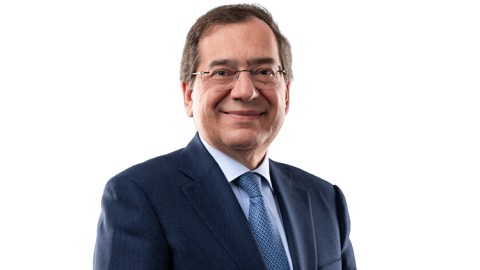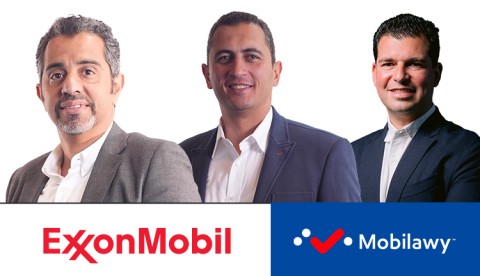What is your opinion regarding the outcomes of COP27 and what direction will oil-producing countries take given these outcomes?
Despite only contributing less than 3% towards the world’s greenhouse gas emissions, global actors continue to call for Africa to abandon its oil and gas resources. While we recognize the impacts of climate change – Africa actually faces some of the harshest impacts – abandoning oil and gas is not the solution to reducing emissions. Rather, oil and gas producers have a critical role to play through the adoption of sustainable practices. Going forward, as Africa continues to maximize its hydrocarbon resources in pursuit of alleviating energy poverty and industrializing the continent, priority will be placed on sustainability and environmental protection, so that the energy transition is just while economic growth is accelerated.
How do you think a just energy transition can be accomplished in Africa, which suffers from severe energy poverty?
Africa needs to diversify its energy mix by exploiting all of the available energy resources. With over 600 million people living in energy poverty and over 900 million living without access to clean cooking, the continent needs to leverage its entire energy base. This includes the estimated 125.3 billion barrels of crude oil, over 620 trillion cubic feet of proven gas reserves and nearly 16.4 billion short tons of coal, as well as the range of available hydropower, biomass, geothermal, solar energy, hydrogen and wind energy potential.
At the same time, the continent needs to prioritize carbon capture and mitigation through the deployment of carbon reduction mechanisms, while investing heavily in local content and capacity building. A just energy transition cannot be achieved without an educated and highly skilled workforce. In this regard, collaboration across the entire energy value chain, as well as between African and global stakeholders will be key. Policies also need to prioritize the continent’s needs before adhering to global requirements, and progress has already been made in this regard.
In your opinion, how can energy poverty in Africa be eradicated?
Alleviating energy poverty will be achieved through heightened investment and improved intra-African trade. In order for the continent to benefit from the range of natural resources it possesses, investment needs to increase in current and upcoming project developments. At the same time, priority needs to be placed on domestic utilization of resources. Africa cannot benefit from its resources if it does not have the relevant infrastructure to distribute and utilize those resources.
This is why we are advocating for and accelerating the development of regional systems such as the East African Crude Oil Pipeline, the Central African Pipeline System, the Nigeria-Morocco Gas Pipeline and the Trans-Saharan Gas Pipeline System, as well as a wide range of refinery and gas-to-power plants. By maximizing intra-Africa trade and regional cooperation across the oil and gas sector, Africa has the opportunity to achieve energy security and economic prosperity. The development of refineries will enable the continent to process and distribute its own refined products, reducing imports and scaling up fuel security, while the construction of large-scale oil and gas receiving terminals will advance intra-African trade across the liquefied natural gas and associated sectors.
With the Russia-Ukraine war intensifying, what do you expect for energy markets in 2023 and beyond, and how will OPEC navigate through this uncertain future?
Geopolitical dynamics will likely impact the global energy market, just as the COVID-19 pandemic did. In this regard, OPEC’s role will remain to closely monitor the market. Our aim is to create as much stability as we can so that both suppliers and consumers benefit. As such, we will continue to monitor the market and the changes that occur.
What unique developments are taking place in Equatorial Guinea’s energy sector?
There are a lot of developments being undertaken in Equatorial Guinea. On the upstream side, a number of companies are engaging in exploration and production, and we expect to announce several production sharing contracts soon. We are focused on advancing our E&P agenda while reinvesting in existing wells.
2023 also marks the year in which we are concluding consultations with stakeholders for the finalization of the new Hydrocarbon Law which will lay a clear path for existing investors and energy companies. With gas representing the energy resource of the future, we want to make sure that gas provisions and fiscal terms are provided for in the new legislation. In addition, more work will be done this year to boost our Gas Mega Hub, with several partnerships with neighboring countries having already been signed in this regard. We are also progressing with the establishment of the Central African Pipeline System.
What competitive advantage does Equatorial Guinea’s energy sector have that could make it a formidable force in the global energy market?
We have over 1.5 trillion of proven natural gas reserves and with the demand for gas expanding globally, our resources present a huge opportunity for the growth of our economy. Equatorial Guinea’s strategic location and its liquefied natural gas (LNG) capabilities makes our sector an ideal industry for global investors to invest in and markets to partner with. We are strategically located to export gas across the globe. Furthermore, investor-friendly fiscal terms continue to attract new investments as we bolster the upstream, midstream and downstream sectors while also expanding our renewables energy portfolio.
Are you optimistic about Equatorial Guinea’s energy future and what improvements do you think need to happen in your country to guarantee its continued success?
Equatorial Guinea is well on its way to become a regional processing hub through our Gas Mega Hub initiative. Going forward, we are committed to finding and developing new wells while reinvesting in existing fields to maximize output. I believe that with the new Hydrocarbon Law in place, we will be able to maximize the transformation and continued growth of the energy sector.
What role do you think Egypt can play in the global energy market, especially with the recent developments in its oil and gas industry and its effort to increase LNG exports?
With its strategic location and significant resource base, Egypt is well positioned to supply the global market with oil and gas. The country has been committed to increasing its production, with a number of developments recently launched. Increased focus on LNG by the government and improved ties with Europe continue to enhance the country’s attractiveness as a trade partner. Just like other African producing countries, Egypt’s energy resources have emerged as highly attractive in the global energy market. w
What is your message to visitors at EGYPS 2023?
Africa is not ready to abandon its oil and gas resources. For the sake of economic progress, industrialization and energy poverty alleviation, we need to drill more wells, make new discoveries and invest in African energy. We also need to prioritize intra-African energy trade so that the continent benefits from its own resources.








